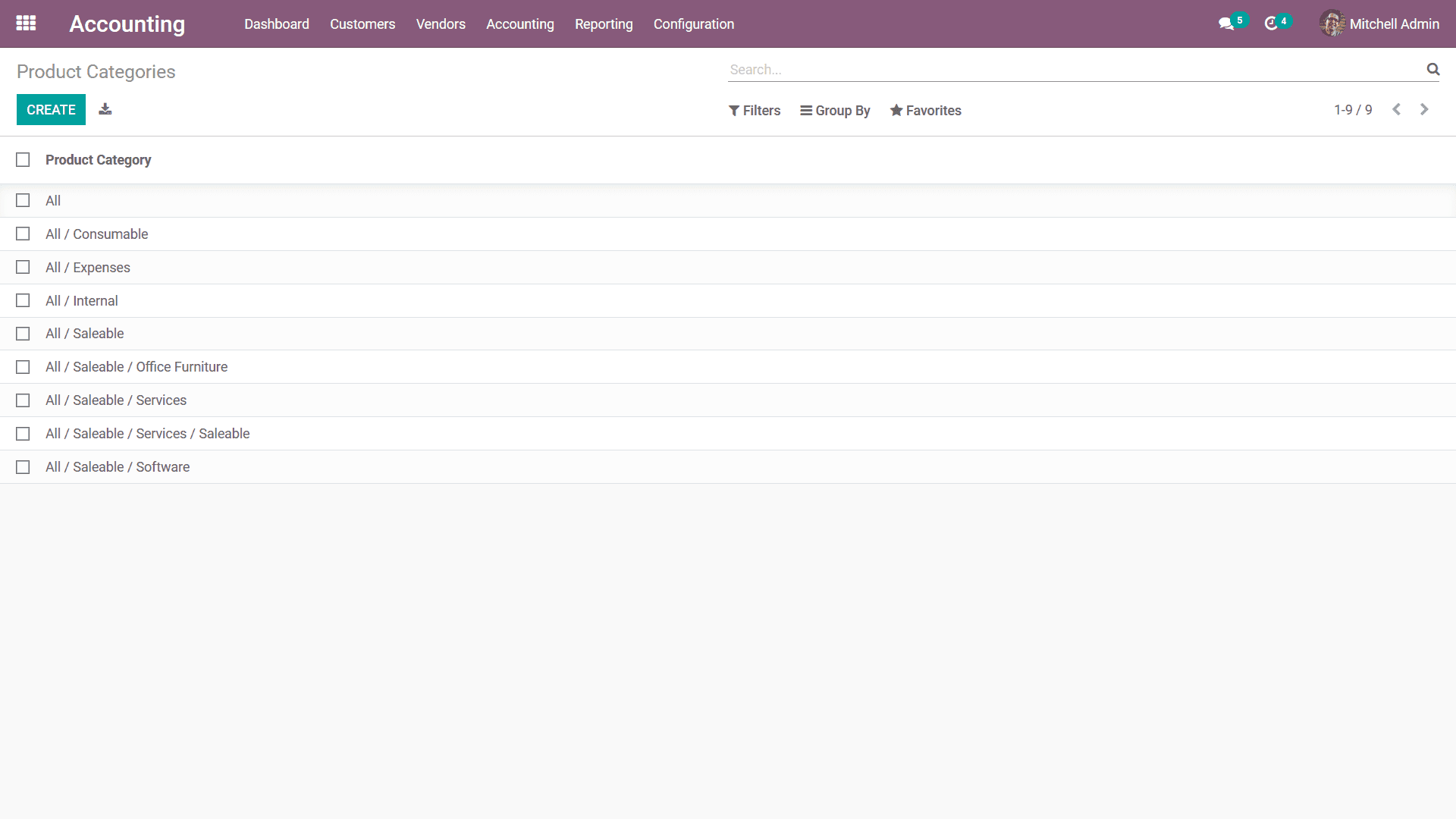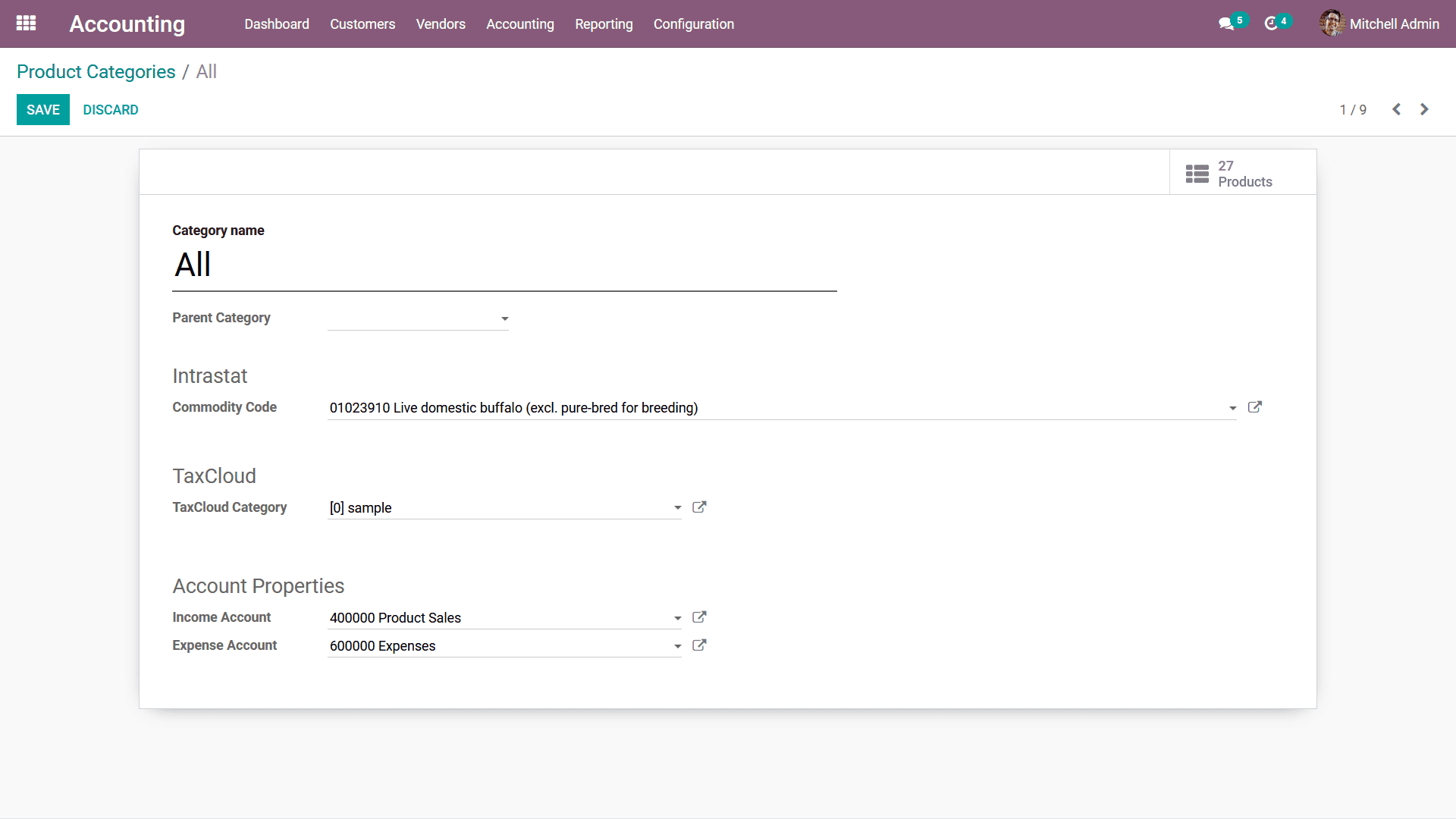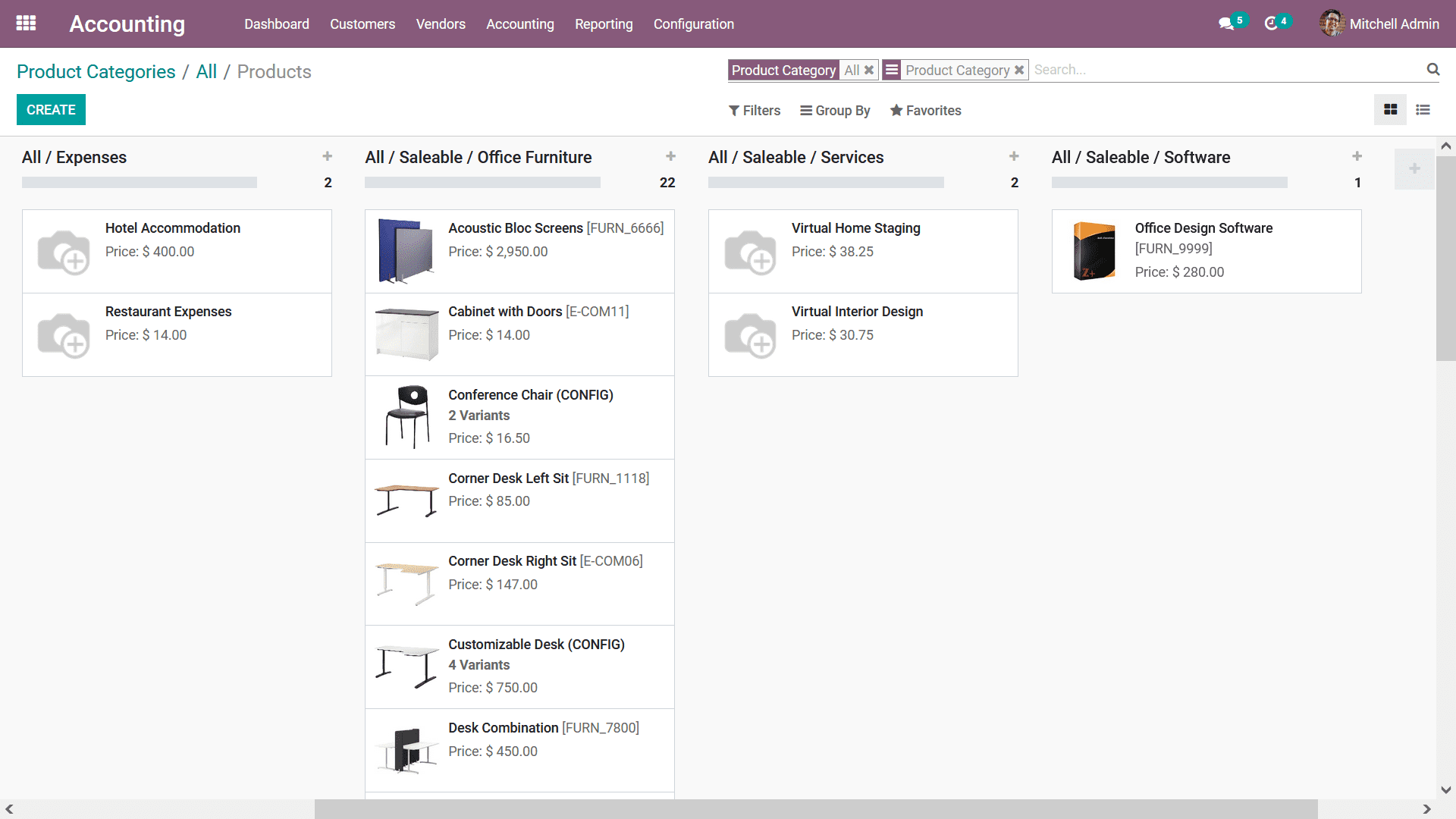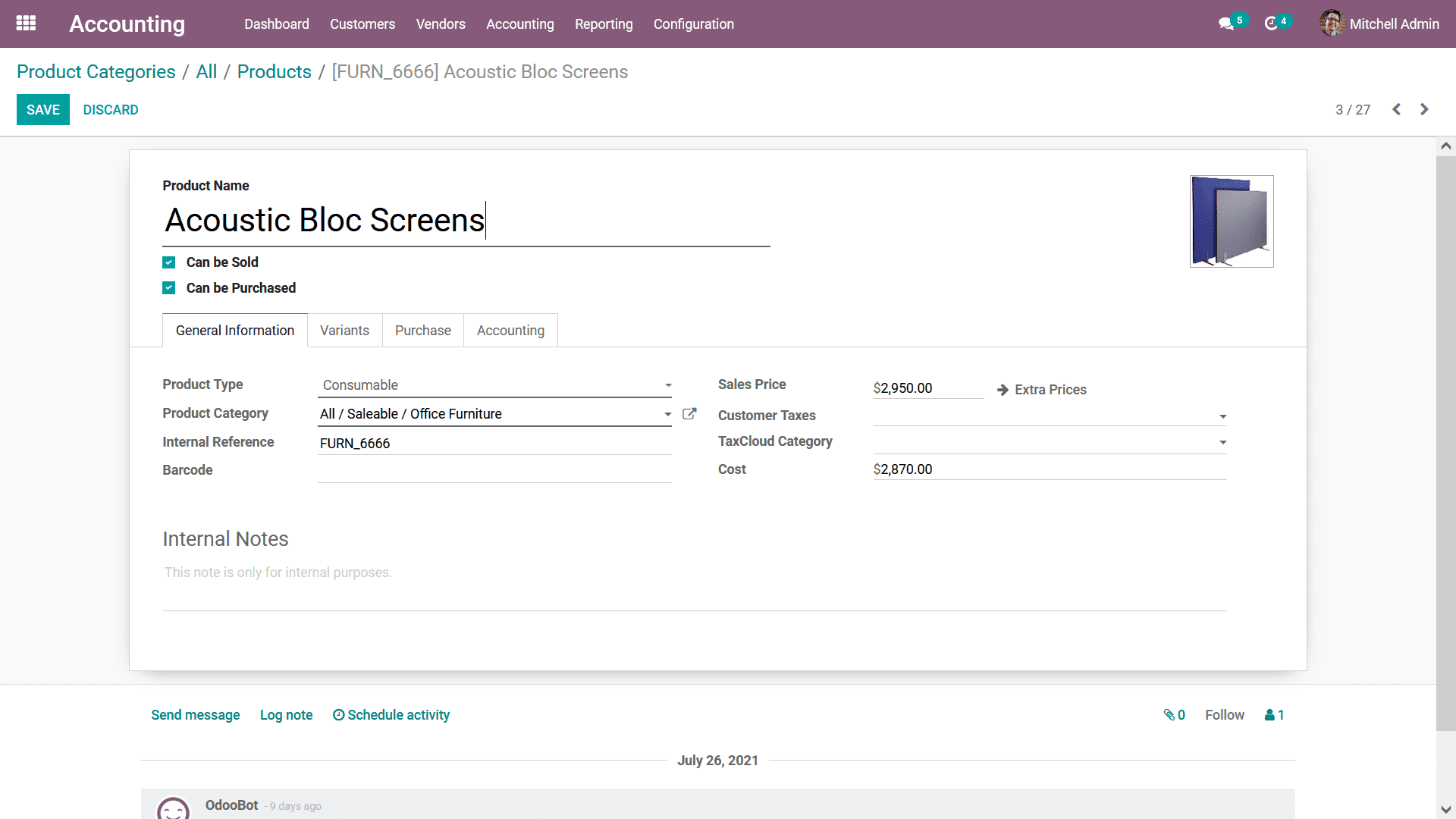Products Categories
Categorizing the products as well as the commodities of a business is essential
for effective management operations. The Odoo platform supports the aspect of products,
services, accounts, journals, and many more to be configured into classifications
as well as types helping you to deal with the various aspects of business with ease.
In the Accounting module, the Products Categories configuration tool is available
which will help you to classify the products based on various categories. In the
Products Categories window, all the product categories which have been described
in the operations of the Odoo platform are defined. There are also Filtering as
well as Group by options available just as for other menus in the Odoo platform.

You can edit an existing Products Category that has been described by selecting
the respective Products Categories. Moreover, to create a new Products Category
you can select the Create option available. In the creation window just as depicted
in the following screenshot you need to initially provide the Category Name, assign
the Parent Category. Under the Intrastat tab, the Commodity Code can be defined
either by selecting it for the drop-down menu or defining a new one. The Taxcloud
menu where the TaxCloud Category should be also selected from the drop-down menu.

Furthermore, the Account Properties configuration options such as Income Account
and Expense Account can also be defined either by selecting it for the drop-down
menu or defining a new one here. The Income Account will register all the incomes
generated from this Products Category and the Expense Account will define all the
expenses in respect to the respective Products Category. The products which fall
under this category will be defined in the Products menu accessible by selecting
the option available in the Products Category creation window. The following screenshot
will describe the Products which come under the respective Products Category. The
Products menu will be depicted based on the various stages as well as the filtration
of the Respective category of the products which is being defined. You also have
the provision to remove the filters and view the entire products which are being
defined. To create a new product to the respective Product category you can select
the Create option available. To edit the products, you can select the respective
product and select the Edit option that is available.
The Inventory Valuation is conducted to decide whether the Stock Journals should
be created this can be done both manually or automatically. The Automated Inventory
Valuation can be operated with a mandatory definition of the Stock Accounting Properties
which will lead to the record stock valuation. Moreover, you can define three types
of Accounts: Stock Valuation Account to record the current stock value, Stock Input
Account to record the received stock value, and finally, the Stock Output Account
to record the value of the stock which is moved out. Furthermore, the Stock Journal
will be used to define all the entries on the stock movement and the Price Difference
Account is used in Anglo Saxon Accounting to record the difference in price between
the purchase price and the accounting cost.

In the product creation window, the Product Name should be initially described and
further you can enable the option Can be Sold and Can be Purchased. Under the General
Information tab, the Product Type, Product Category which here will be defined as
you are creating a product under the respective Product Category. Furthermore, the
Internal Reference, as well as the Barcode of the respective product, can be defined.
Regarding the pricing aspects, the Sales Price, Customer Taxes, TaxCloud Category,
and Cost can be defined.k

Furthermore, the Variants, Purchase, and Accounting tab can be defined for the respective
product based on the need. You will always have the provision to edit the details
which have been provided any time you want. All the products that have been defined
here will be depicted on the Products menu of the entire Odoo platform. As we are
clear on the aspects of the Product Categories configuration let's now move on to
the next section where the Deferred Expense Models will be discussed in detail.